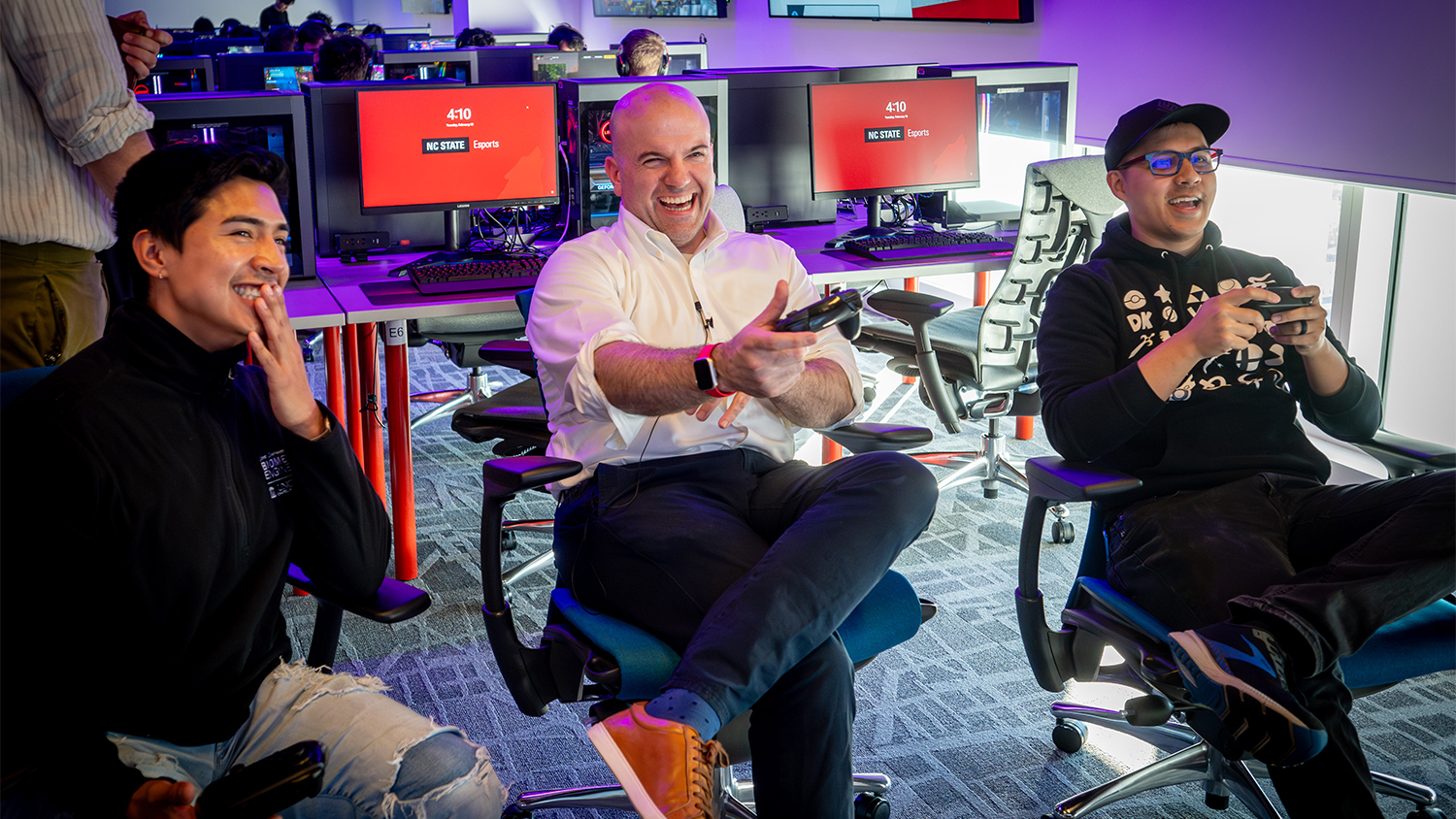Meet the embedded counselors on Centennial Campus

Miranda Liu and Hannah Lavasque may be new to NC State University, but they already have their routine.
Every Tuesday from 2-4 p.m., the embedded counselors find themselves in room 3001 of Engineering Building II, where they talk to members of the College of Engineering (COE), help people fill out intake forms and more.
As embedded counselors, Liu and Lavasque provide intentional support for the COE community on top of the services provided by the NC State Counseling Center.
“Students are paired with the service that aligns with their specific preferences or needs,” said Liu. “This can include individual counseling, groups and / or workshops. The piece that we’re adding on top of the many counseling center services is being around the students, faculty and staff, learning the specific stressors, strengths and difficulties so we can better advocate for the students.”
Liu, who graduated with a Master of Social Work from NC State in 2015, is a licensed clinical social worker and worked in outpatient therapy for over seven and a half years. Lavasque graduated with a Master of Arts in Art Therapy and Counseling from Southwestern College in Santa Fe, New Mexico, in 2016, but she does have several NC State alumni in her family, including some from the COE.
The goals of the embedded counselors program are lowering the barrier to entry for mental health services and decreasing stigma around mental health. The embedded counselors program is based on similar programs at the University of Michigan and The Ohio State University. All colleges at NC State now have or are hiring embedded counselors.
“Our main counseling center is absolutely incredible and offers so many wonderful services, and care is often hardest to access when we need it most,” said Lavasque. “As many people know, there is a stigma related to mental health and accessing mental health services, and the fewer steps we can put between a person and the services they need, the more likely they are to be able to overcome that stigma and ask for help.”
Aside from the drop-in space, Liu and Lavasque also plan to explore the groups offered through the counseling center; attend outreach events and postventions provided by COE, the counseling center and prevention services; and get connected with larger COE events.
“We are so excited to be able to offer our support to the COE as we settle into these new roles,” said Lavasque. “Miranda and I are new to this community, and while we have ideas on how to best serve and support the COE, we also want to hear from you, to learn what you need, because the best support we can possibly give will be the support you need, not the support we have decided you need.”
- Categories:


